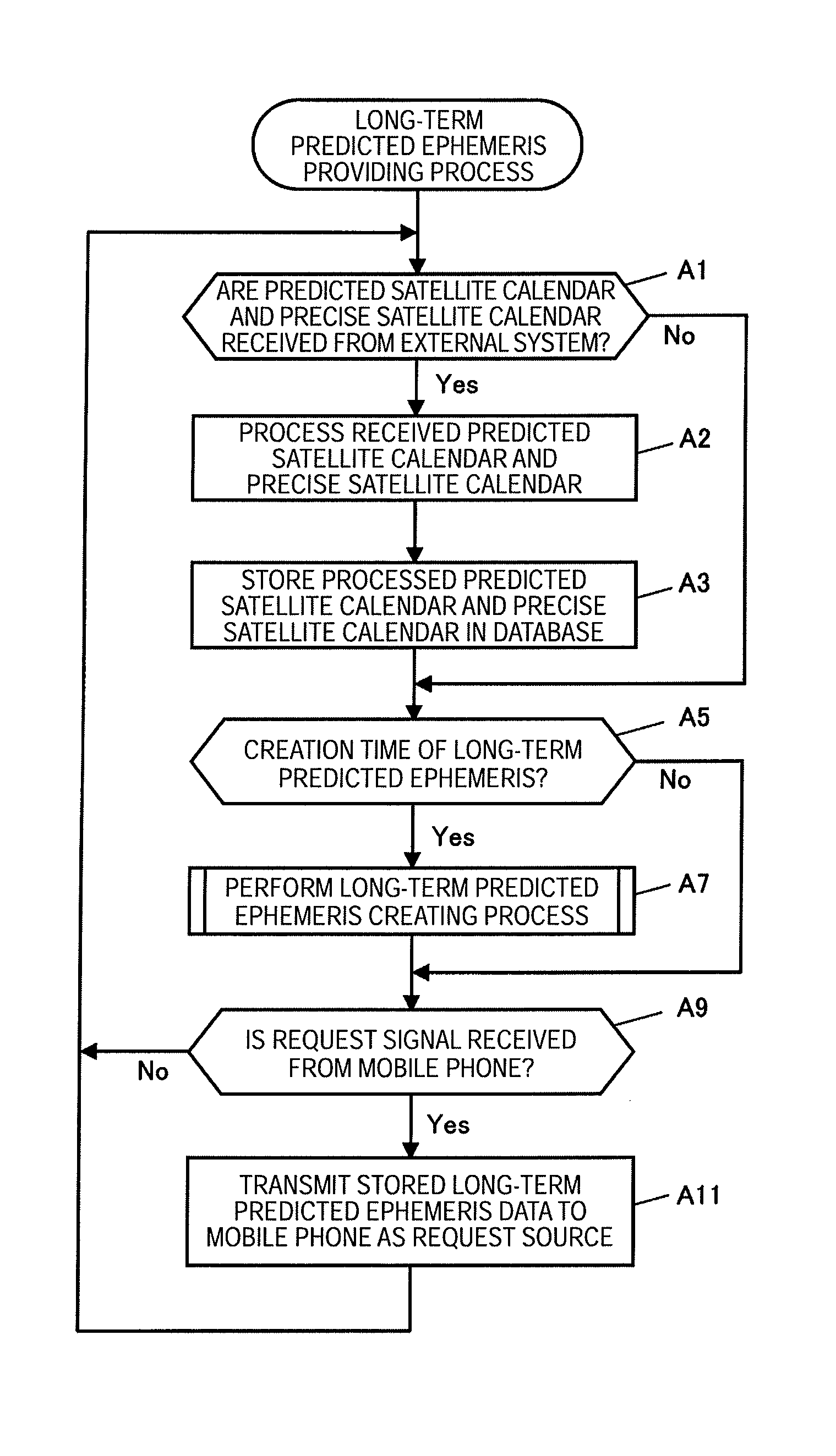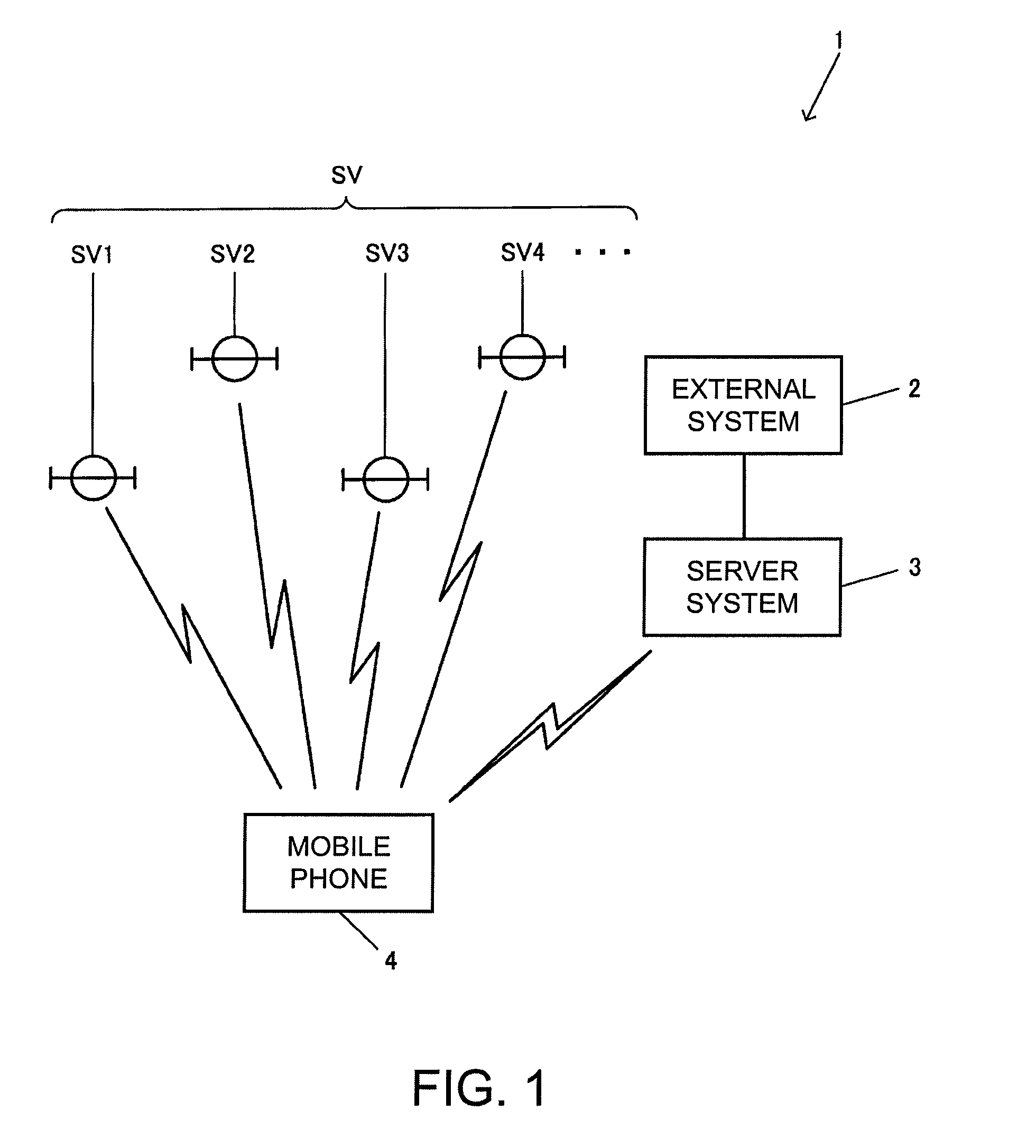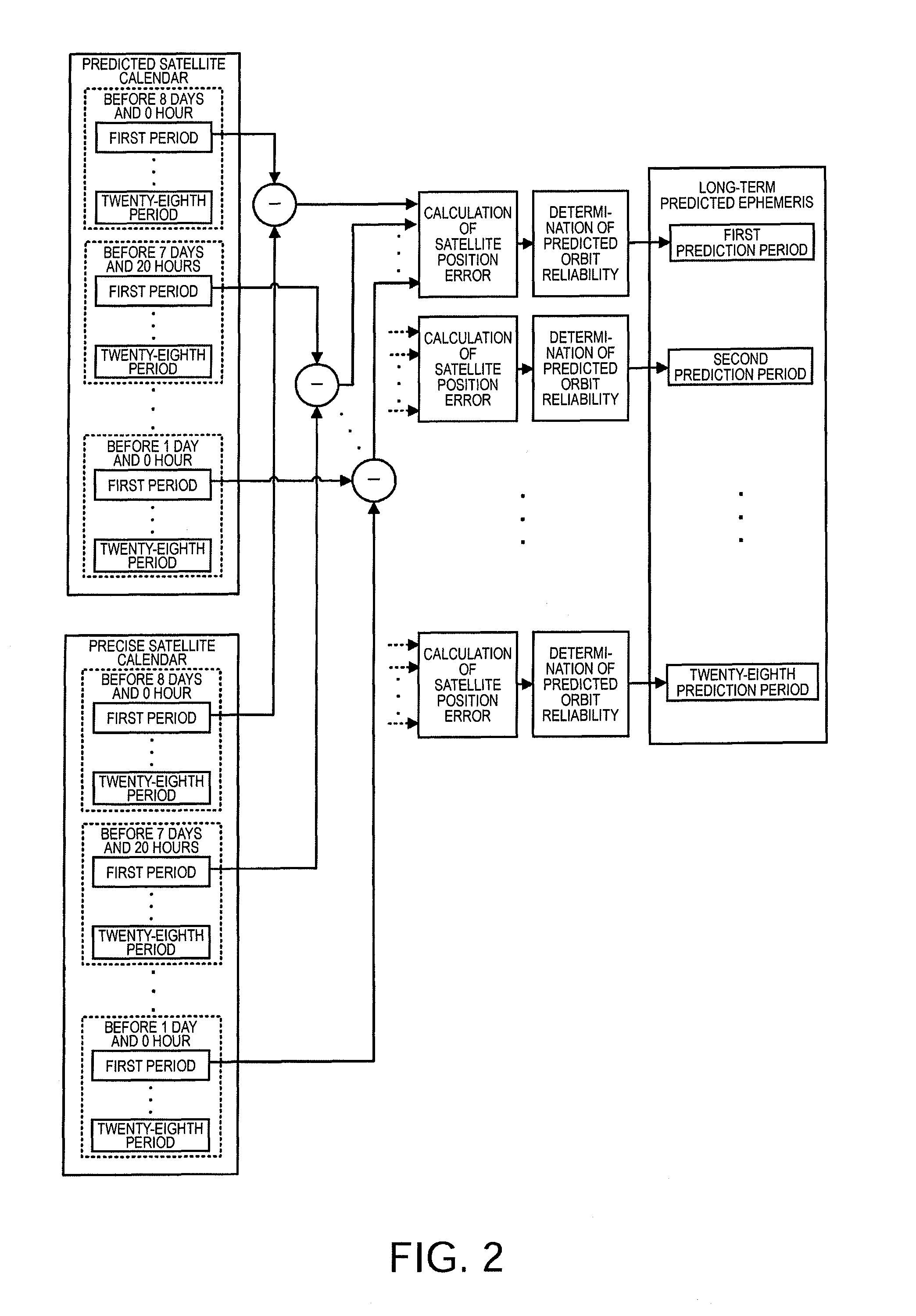Method providing reliability data of long-term predicted orbit data of positioning satellite, apparatus for providing same, and computer program for providing same
a technology of positioning satellite and reliability data, applied in the field of determining the reliability of long-term predicted orbit data, can solve the problems of low reliability of positioning calculation using long-term predicted ephemeris, poor precision of satellite information, and mismatching of predicted positions of positioning satellites in the predicted satellite calendar
- Summary
- Abstract
- Description
- Claims
- Application Information
AI Technical Summary
Benefits of technology
Problems solved by technology
Method used
Image
Examples
first embodiment
1. First Embodiment
1-1. Principle
[0051]The server system 3 performs a process of creating the long-term predicted ephemeris using the predicted satellite calendar acquired from the external system 2. Specifically, the period from the creation time of the long-term predicted ephemeris to the time after one week is used as a creation period and the creation period is divided into plural periods (hereinafter, referred to as “prediction periods”) when a satellite orbit is approximated and modeled. In this embodiment, the magnitudes of the prediction periods are uniformly 6 hours. That is, a creation period of one week is divided into 28 prediction periods (first prediction period to twenty-eighth prediction period) every 6 hours.
[0052]The server system 3 extracts the predicted position in each prediction period out of the predicted positions included in the predicted satellite calendar acquired from the external system 2. Keppler' s satellite orbit model expression (hereinafter, also re...
second embodiment
2. Second Embodiment
2-1. Data Structure
[0113]In a second embodiment of the invention, the ROM 340 stores a second long-term predicted ephemeris creating program as a sub routine of the long-term predicted ephemeris providing program 341 and a second predicted orbit reliability determining data 345 as data. The CPU 310 performs a second long-term predicted ephemeris creating process by reading and executing the second long-term predicted ephemeris creating program in the long-term predicted ephemeris providing process.
[0114]FIG. 15 is a diagram illustrating the data structure of the second predicted orbit reliability determining data 345. The second predicted orbit reliability determining data 345 correlates and includes a satellite measurement error range 3451 to which a satellite measurement error to be described later belongs and a predicted orbit reliability 3453 set when the satellite measurement error belongs to the satellite measurement error range 3451. Although the predicted...
PUM
 Login to View More
Login to View More Abstract
Description
Claims
Application Information
 Login to View More
Login to View More - R&D
- Intellectual Property
- Life Sciences
- Materials
- Tech Scout
- Unparalleled Data Quality
- Higher Quality Content
- 60% Fewer Hallucinations
Browse by: Latest US Patents, China's latest patents, Technical Efficacy Thesaurus, Application Domain, Technology Topic, Popular Technical Reports.
© 2025 PatSnap. All rights reserved.Legal|Privacy policy|Modern Slavery Act Transparency Statement|Sitemap|About US| Contact US: help@patsnap.com



